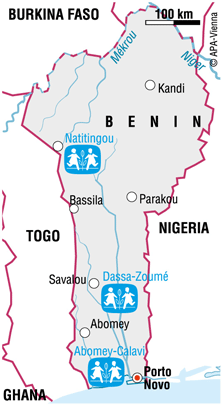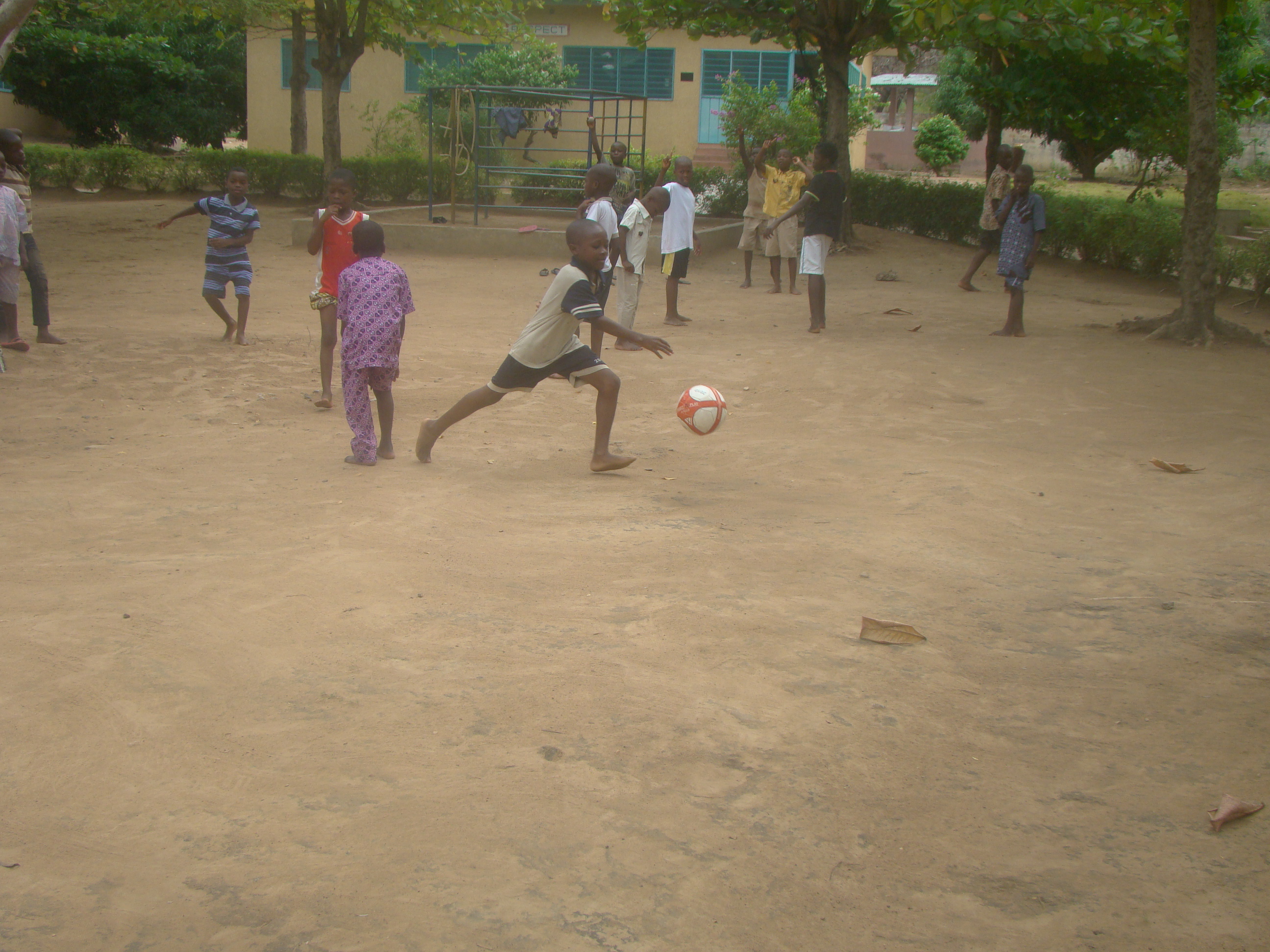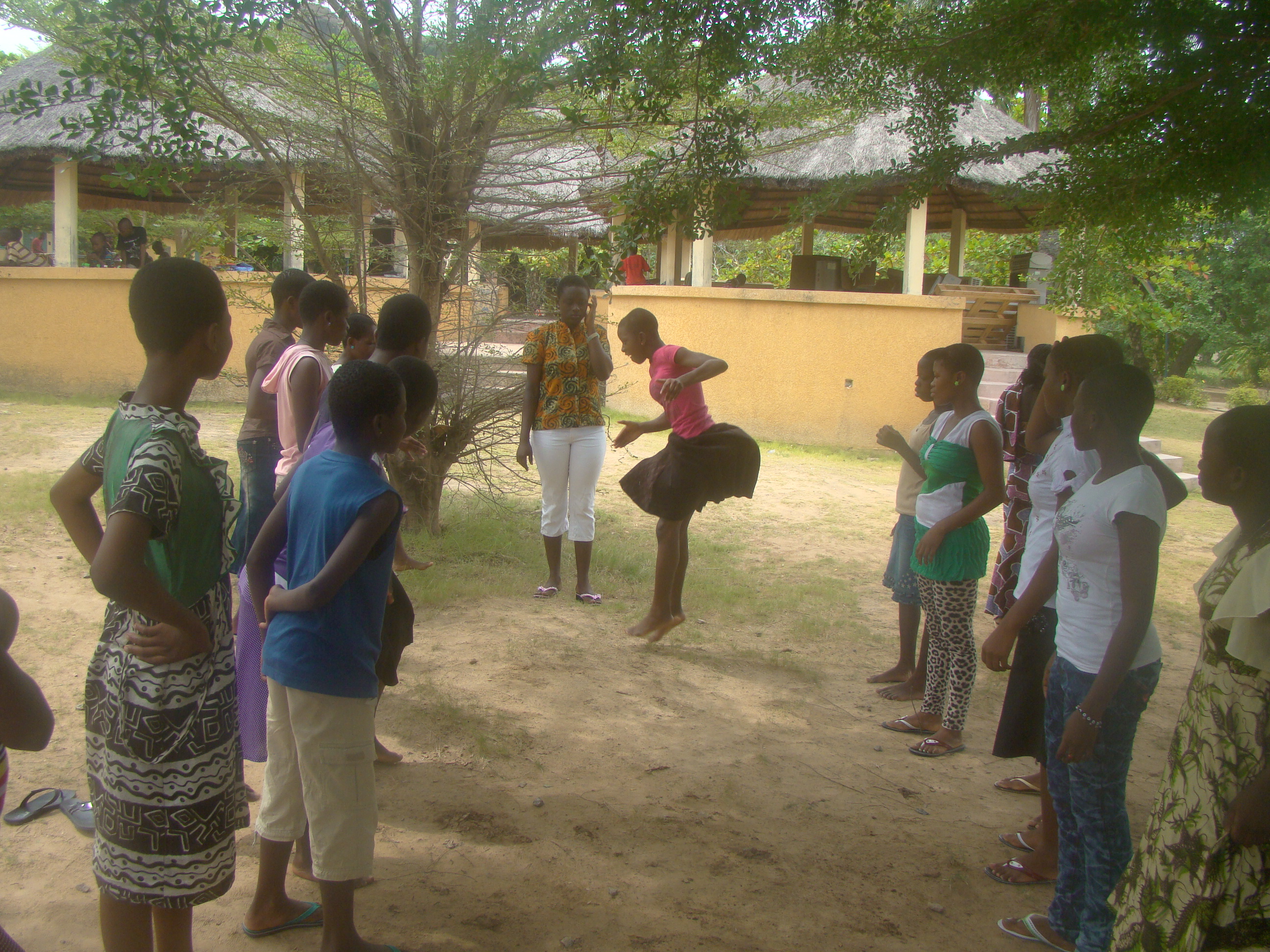
Vi er i Benin
A diverse country in western Africa
Benin has a total population of 10.4 million and its capital city is Porto-Novo, home to approximately 280,000. Its official language is French; however, a number of indigenous languages, in particular Yoruba and Fon, are widely spoken.
Its shores include what used to be called the “Slave Coast”, from where African slaves were once shipped to the Americas. In 1872, Benin became a French colony. In 1960 it achieved independence as the Republic of Benin.
After a series of military governments, a shift to representative government occurred in 1989. Economically, Benin strongly depends on neighbouring Nigeria, which has been the country’s most important trading partner in the region. Benin is one of the continent’s largest cotton producers as cotton accounts for a substantial part of the country’s Gross Domestic Product.
One of Africa's most stable democracies but still a very poor nation
In a country in which nearly 10 per cent of the population are undernourished, life becomes a daily struggle for those who find themselves on the lowest rungs of the socioeconomic ladder. Benin remains one of the continent’s poorest nations: 51 per cent of its population live in poverty, struggling to make ends meet.
Besides HIV/AIDS, other pressing public health concerns include infectious diseases such as hepatitis A, typhoid fever, malaria and yellow fever. Thousands of people still die from diseases that could easily be treated in Western nations.
Poverty in Benin is predominantly a rural phenomenon: in rural areas, only seven per cent have access to sanitation facilities. Access to drinking water is also scarce in the countryside, where 28 per cent have to use water from unimproved sources.
In 2010, Benin experienced one of the worst floods in the country’s history. Thousands of people were forced to leave their houses. Many schools and public buildings were either partially or completely destroyed and most crops were also ruined, worsening the food situation, which had already been critical before the floods.
Children are in need of protection
Demographically speaking, Benin is a very young nation: nearly 50 per cent of the country’s population is less than 18 years old. However, life for many Beninese children can be tough as their rights are violated every day. Many children have lost their parents due to AIDS. Especially the mother-to-child-transmission of HIV is a persistent problem: 37,000 women in Benin are HIV-positive.
In one of Africa’s poorest nations, about one in five children is underweight. The situation became even more dramatic as a result of the heavy floods in 2010. Out of 1,000 live births, 90 children never reach the age of five.
Poor access to basic services, food and education turns life for the children of Benin into an everyday challenge. Quite often, children have to work in order to financially assist their families. They would work on family farms, as rickshaw operators, on construction sites or in small businesses and markets.
Not being able to go to school because of work seriously diminishes their chances to lead a better life once they become adults. Without education, the vicious circle of poverty can hardly be broken.
SOS Children's Villages in Benin
Our work in Benin began in 1985. At present, SOS Children's Villages is supporting children, young people and families by providing:
Family strengthening: In 2004, our organisation started SOS Family Strengthening Programmes, which provide much needed support to families who are at risk of breaking down. We work directly with families and communities so that they can protect and look after their children.
Care in families: Children whose parents cannot take care of them will find a loving home in one of the SOS families in one of the three SOS Children's Villages. The children grow up with their brothers and sisters in SOS families and SOS foster families.
Wherever possible, we work closely with the children’s family of origin, so that they can live together again. Whenever this happens we work towards supporting them during the period of change and adjustment.
Education: We run kindergartens and provide primary and secondary school education to vulnerable children.
Training and support for young people: The high unemployment rate makes it difficult for young people to become independent. The SOS Youth Programmes help young people gain further training and supports them while they look for work.
Advocacy: We work closely with other care organisation and public authorities to raise awareness of children's rights..
DSC01387.jpg?width=800)
-DSC01414.jpg?width=800)